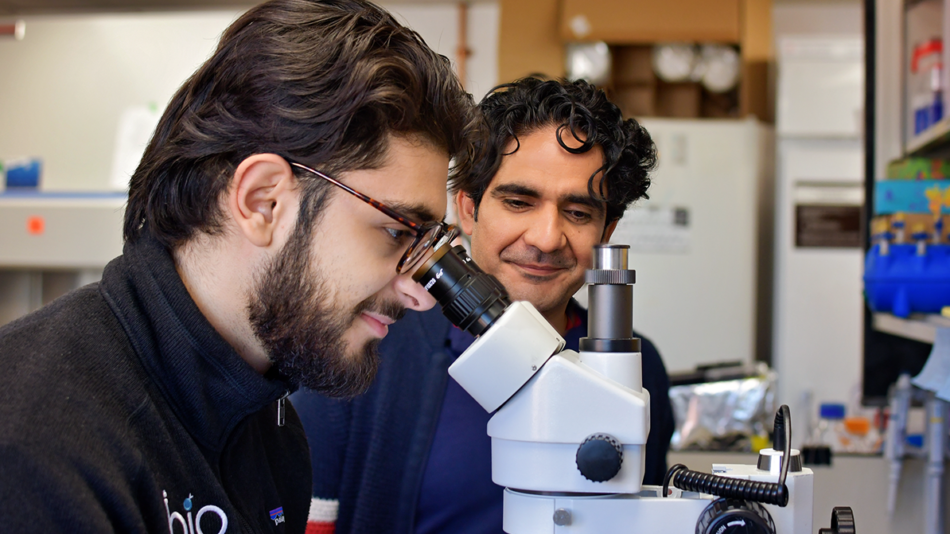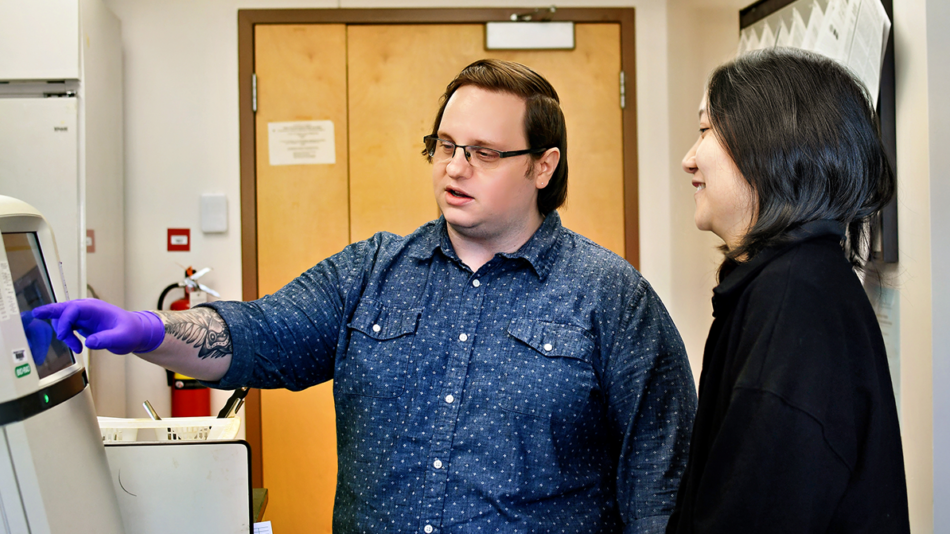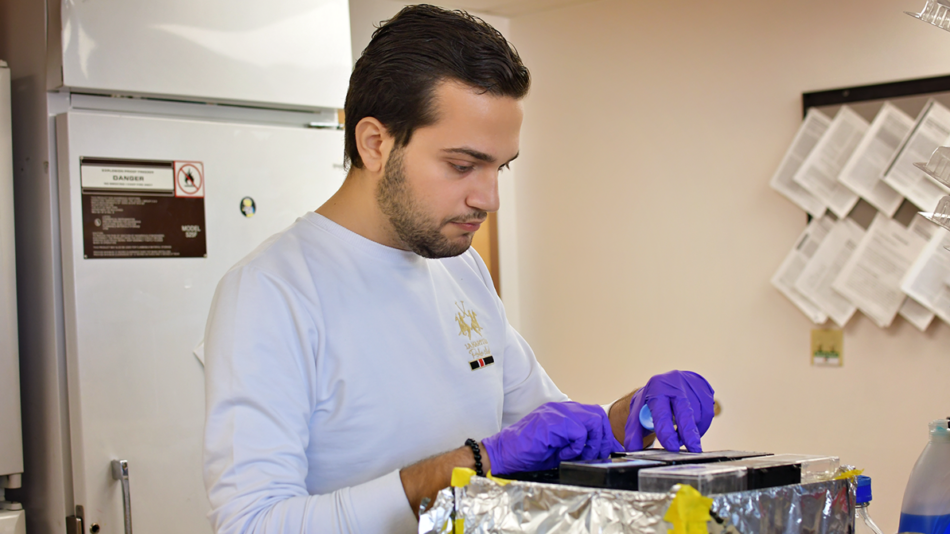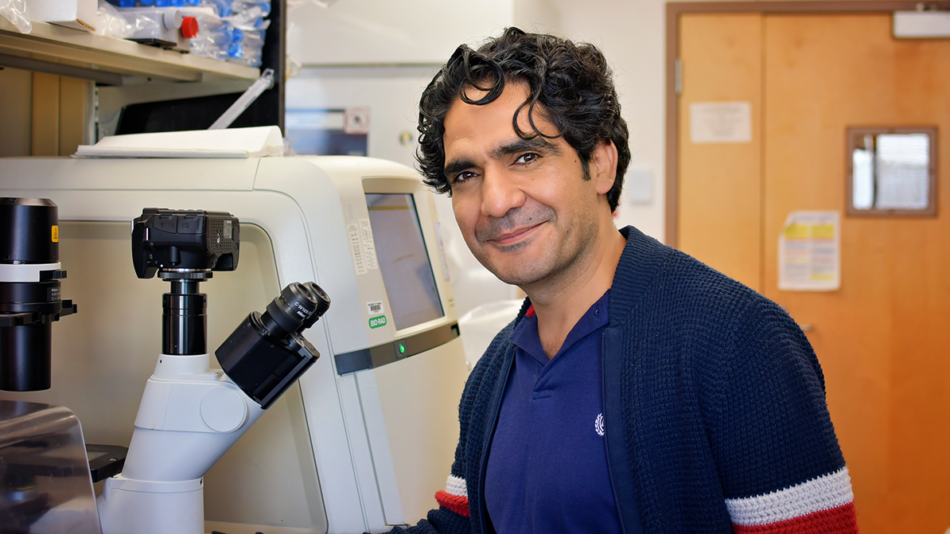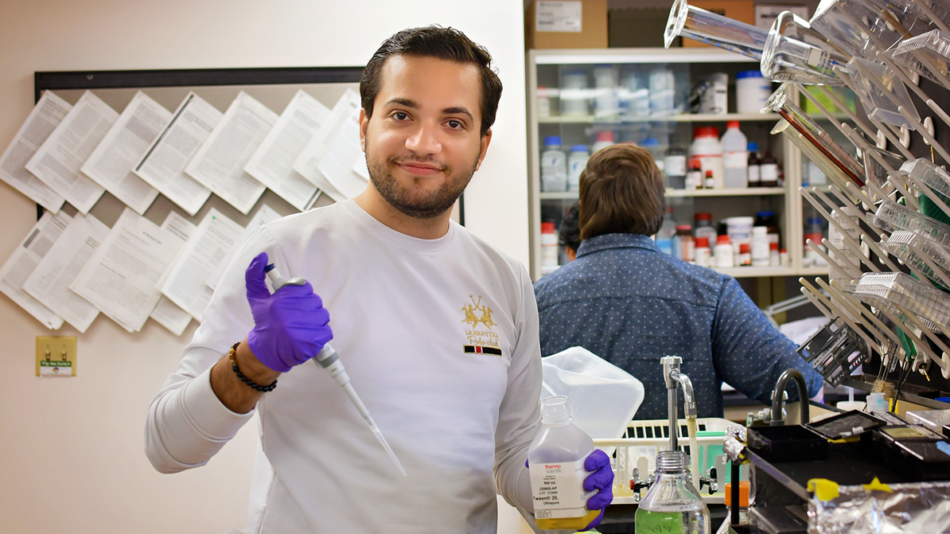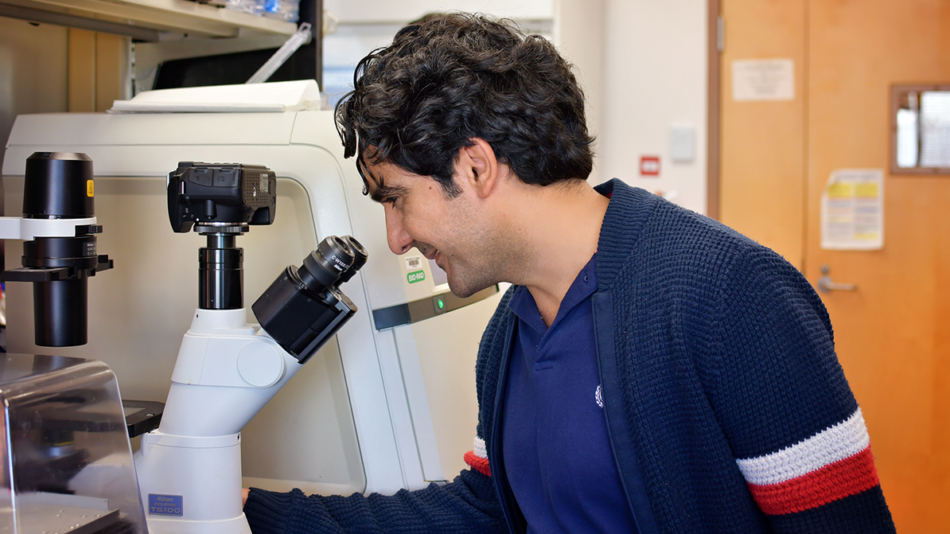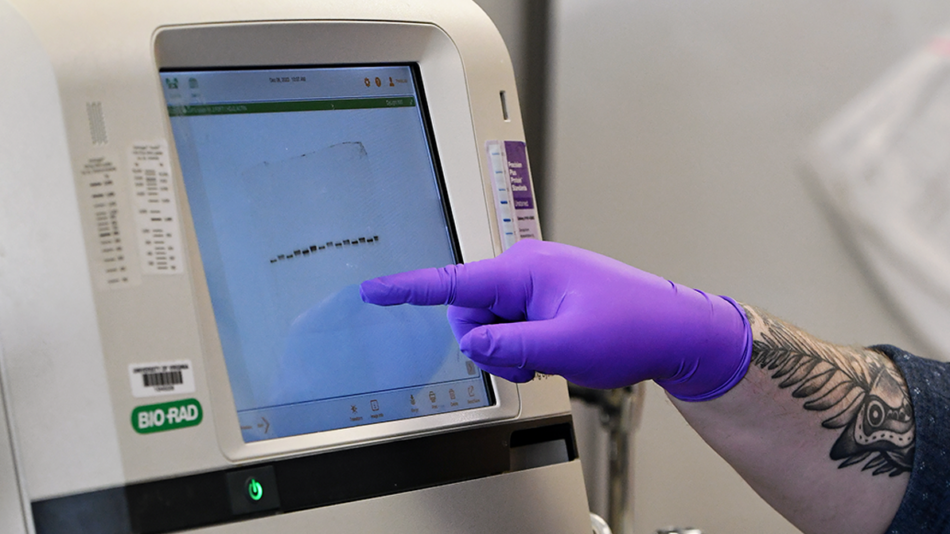Heather Ferris, MD, PhD
 PRIMARY APPOINTMENT:
PRIMARY APPOINTMENT:
Associate Professor of Medicine, Endocrinology and Metabolism
CONTACT:
Email: hf4f@uvahealth.org
RESEARCH AREAS:
Brain cholesterol metabolism, Brain insulin signaling, Alzheimer’s disease, Brain inflammation, Geriatric diabetes management
EDUCATION AND TRAINING
- 1998 BA, Chemistry, B.S., Biochemistry, College of Charleston
- 2005 PhD, Molecular Physiology and Biological Physics, University of Virginia
- 2006 MD, University of Virginia
- 2009 Residency, University of Pittsburgh Medical Center
- 2012 Endocrinology Fellowship, Beth Israel Deaconess/Joslin Diabetes Center
- 2012-2017 Instructor, Harvard Medical School, Research Associate, Joslin Diabetes Center
FUNDED PROJECTS
RESEARCH SUMMARY
Obesity, hyperlipidemia, and type 2 diabetes are all metabolic disorders associated with cognitive decline and Alzheimer’s disease. Our lab is interested in understanding how changes in metabolism, either in the brain or in the periphery affecting the brain, influence the risk for dementia.
1. Brain cholesterol- Cholesterol is an important structural molecule, but it also serves as a regulatory molecule in the brain. It is transported between cells by ApoE particles. Mutations in ApoE are one of the main risk factors for Alzheimer’s disease. We have demonstrated that cholesterol can regulate cellular behavior by changing the ability of cell surface enzymes to interact with their ligands. For example, increased cholesterol can increase amyloid plaque formation and inflammation. In our current studies, we seek to understand how various cholesterol species can differentially affect neuro-inflammation and the possibility of pharmacologically targeting ApoE cholesterol loading and secretion to reduce the adverse effects of excess cholesterol.
2. Brain insulin signaling- Insulin resistance has been associated with the development of several neurological diseases, including Alzheimer’s disease and depression. The brain is much less dependent on insulin signaling for energy metabolism than the periphery. Insulin does, however, play a role in several essential brain functions, including memory, appetite, and reproduction. The type of insulin receptor in the brain and the relative ratio compared to the highly homologous IGF1 receptor and their respective ligands differ substantially from the periphery. We have begun studying a newly identified regulator of insulin and IGF1 receptor signaling, Inceptor.
3. Clinical research- Peripheral metabolic function significantly impacts cognitive decline with aging. Caregivers of persons with dementia are at increased risk for cognitive decline. One possible cause is poor metabolic health due to the stress and burden of caregiving. We are interested in developing interventions targeting this vulnerable population to improve their metabolic and cognitive health.
PRESS
August 8, 2023, Medical News Today, “Light sensitivity in Alzheimer’s may cause worse symptoms later in the day”
July 31, 2023, Diatribe, “How to Have a Healthy Retirement with Diabetes”
June 7th, 2023, Being Patient, “Weight Loss Drug Wegovy’s Next Act: Treating Alzheimer’s? “
February 1st, 2023, LiveScience, “Similar brain thinning seen in older adults with obesity and people with Alzheimer’s”
November 3rd, 2022, Being Patient, “Myth-Busting: Do Statins Cause Dementia?”
September 2021, US News and World Report, “Could Cholesterol Help Drive Alzheimer’s Disease?”
September 2021, NBC12 News, “UVA Research Shows Cholesterol Key Driver of Development of Alzheimer’s Disease”
January 2020, The Washington Post, “Five Myths About Diabetes”
January 2019, BBC, “Is Juicing Actually Good For You?”
June 2018, Virginia Center on Aging, “Dr. Ferris is a Sullivan Alzheimer’s and Related Diseases Research Award Fund Recipient”
May 2017, “Audio: Dr. Heather Ferris About Why You Should Step Away From the Juice Bar”
FERRIS LAB MEMBERS

 Undergraduate
Undergraduate
Lucy is a second year undergraduate majoring in neuroscience and minoring in entrepreneurship. Her research interests include Alzheimer’s disease, attention span and neuronal functions, blue screen and eye floaters, and other biochemical pathways within the brain and its correlation with neurodegenerative diseases and brain functions. In the Ferris Lab, Lucy is working with Josh on the correlation between the concentration of brain cholesterol and the risk of Alzheimer’s.
Outside the lab, she is an RA and enjoys spending time with her residents and is a volunteer at the Universal Hospital through MadisonHouse. In her free time, she enjoys listening to music, playing squash and tennis with friends, and dancing. After graduating from UVA, she hopes to go to medical school.

Lab Specialist
Cheyenne is the lab specialist in the Ferris Lab. She recently graduated with a B.S in Neuroscience from Dickinson College in Carlisle, Pennsylvania. While in school, she researched the developmental basis of fetal breathing movements in mouse embryos through Student-Faculty research and a semester-long independent study related to the human genetics of Congenital Hydrocephalus. Cheyenne’s research interests primarily reside within neurodevelopment and related disease states in pediatric neurosurgery, the brain-gut connection/microbiome, and the mechanisms of neurological disorders. Outside of the lab, Cheyenne works at a local restaurant in Charlottesville, volunteers at The Haven, and is preparing an application to medical school. She enjoys reading, cooking, and sharing giggles with her friends and family in her free time!
 Neuroscience Graduate Student
Neuroscience Graduate Student
 Undergraduate
Undergraduate
Claire is a first-year undergraduate planning to major in neuroscience. In the lab, she works on varying nutrient concentration in astrocyte cells. Outside of the lab, she volunteers with Madison House and enjoys reading and journaling
 Research Scientist
Research Scientist
Dr. Sankar-Sabari grew up and received her early education master’s in India. She did her PhD at the University of Cologne in Germany, where she studied R-type calcium channels. Dr. Sankar-Sabari identified protein partners that interacted with the R-type calcium channel and functionally characterized them by showing how these interacting proteins altered the activation of this calcium channel.
During her postdoctoral studies at the University of Wisconsin at Madison, Dr. Sankar-Sabari worked on the transcription factor NRF2 and how this could be a therapeutic target for Alzheimer’s Disease. She is interested in working on microglia-mediated neuroinflammation in her current position as a research scientist in Dr. Ferris’s lab at the University of Virginia.
Lab Alumni
 Postdoctoral Fellow
Postdoctoral Fellow
 Visiting Scholar
Visiting Scholar
 Undergraduate
Undergraduate
 Laboratory technician
Laboratory technician



